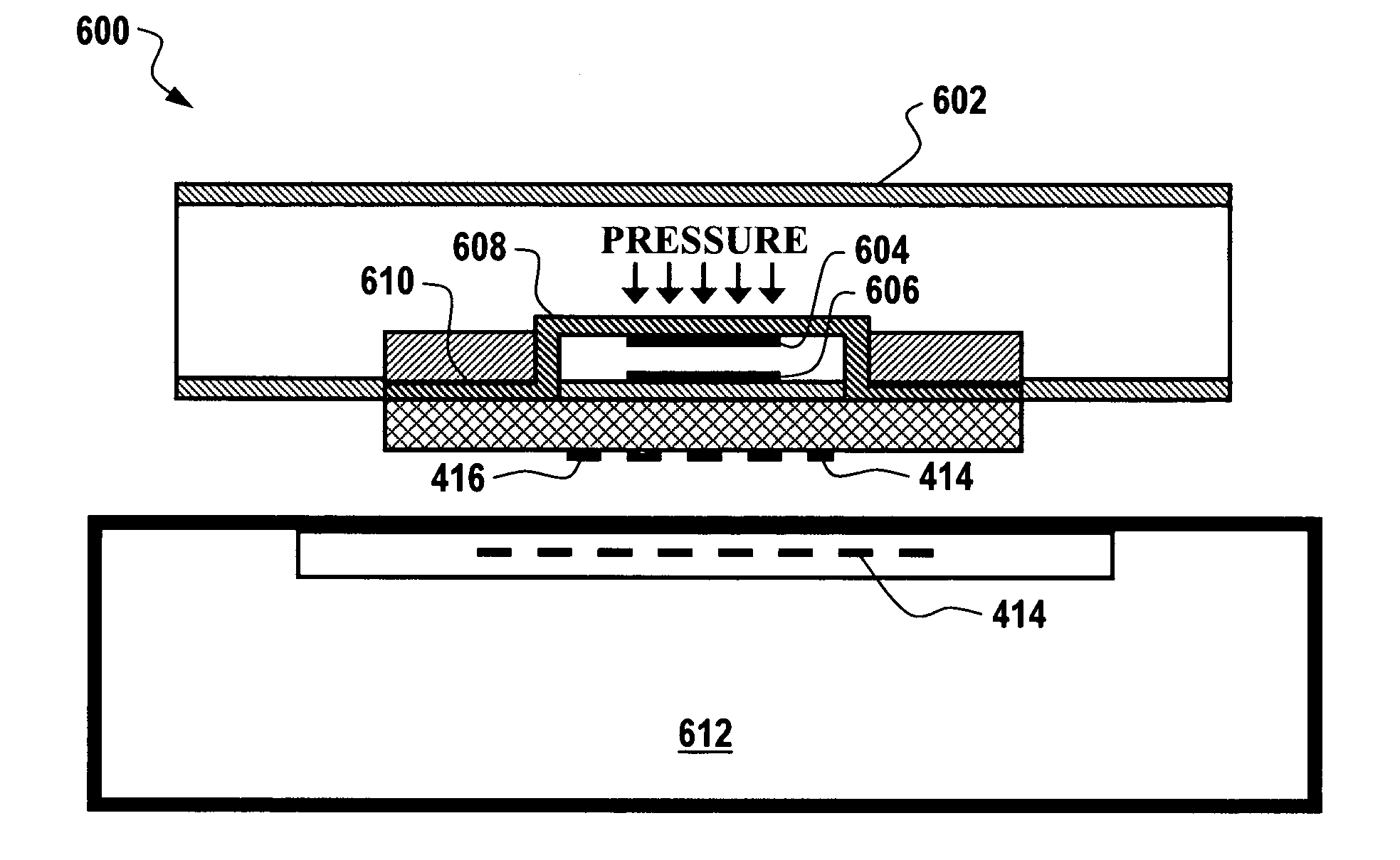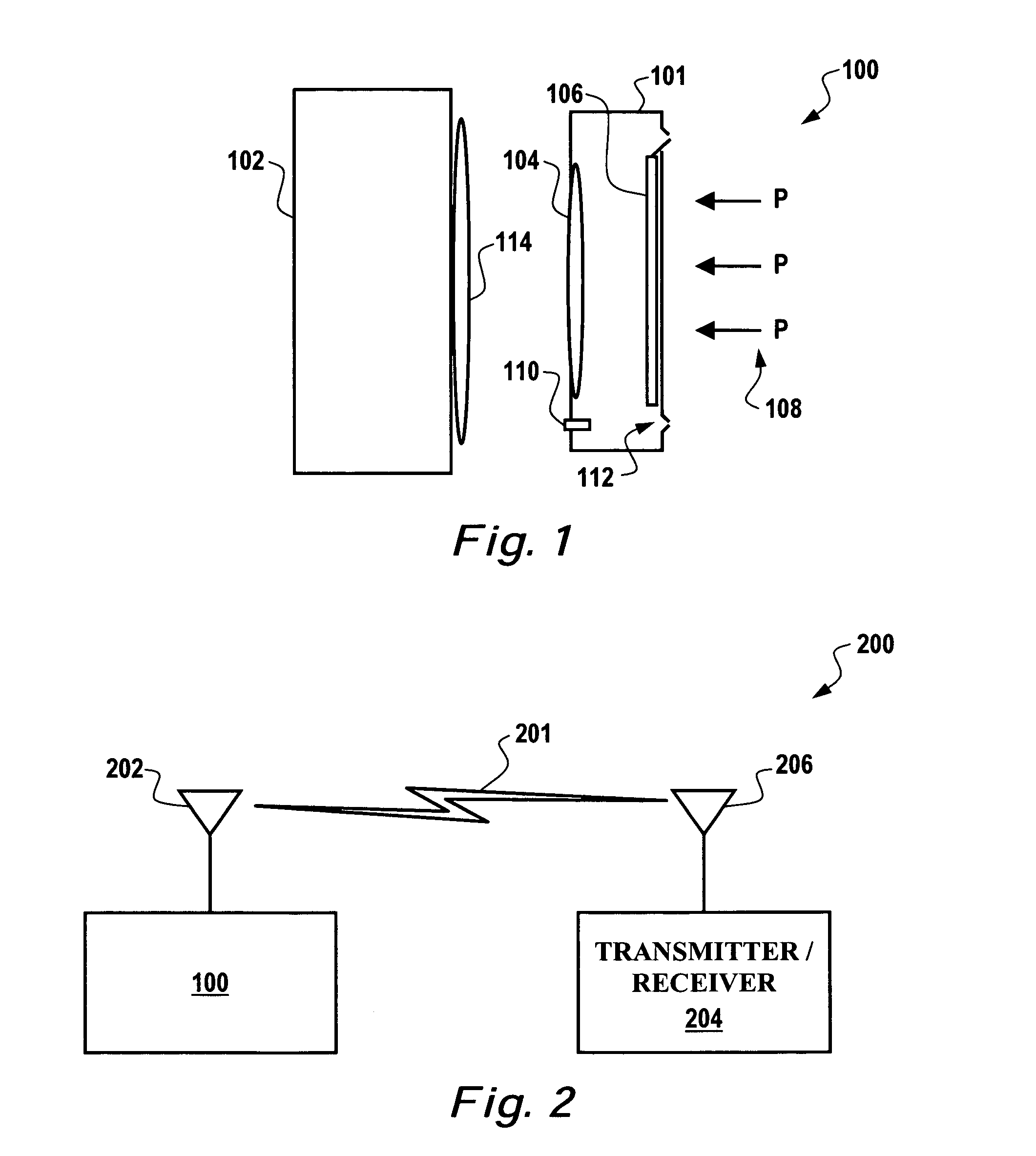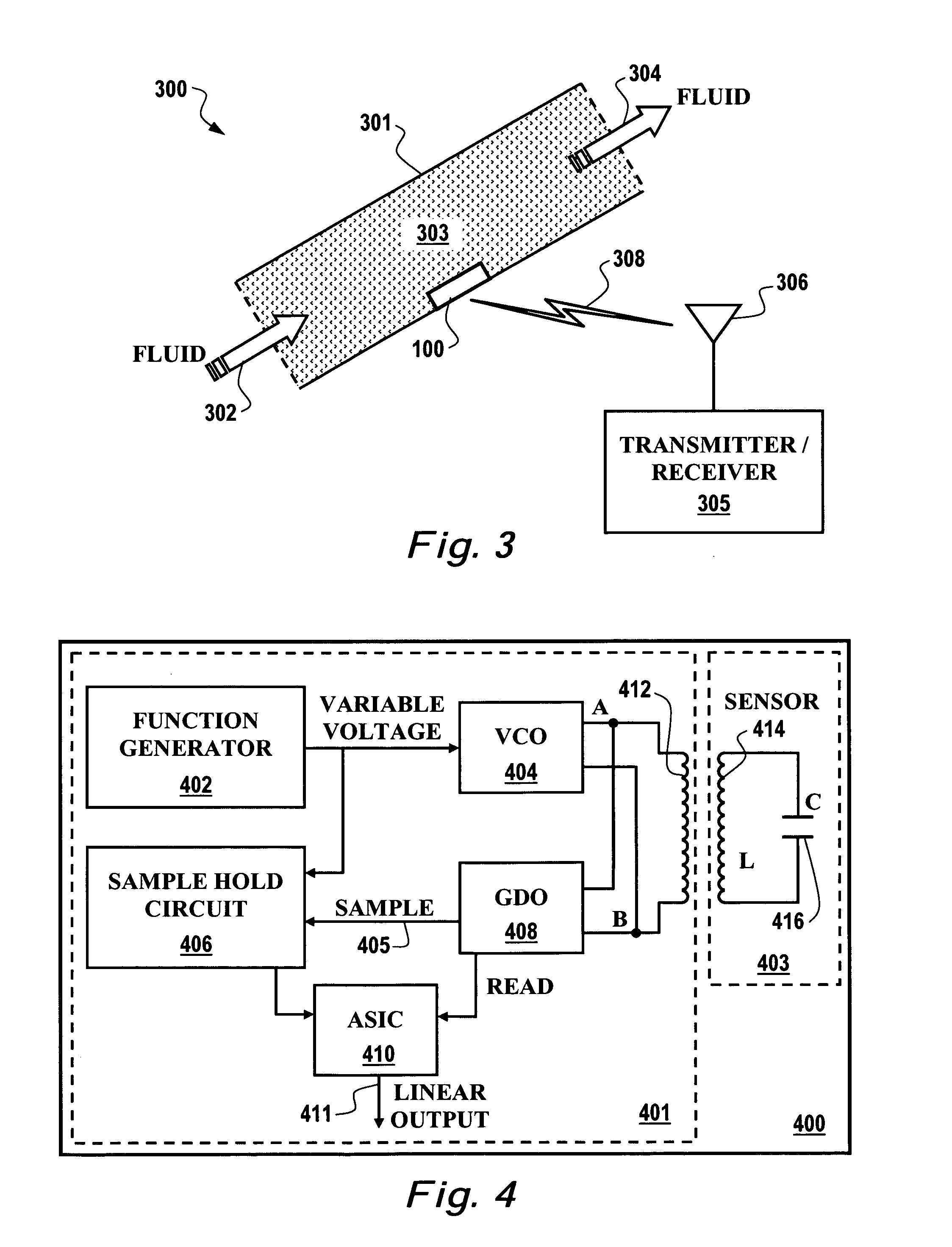Disposable and trimmable wireless pressure sensor for medical applications
a wireless pressure sensor and wireless technology, applied in the field of sensing devices and applications, can solve the problems of inability of conventional saw sensing systems to meet the demand in low pressure applications, inability to accurately sensing air pressure and temperature, and inability to accurately measure air pressure and temperature. , to achieve the effect of reducing the frequency of resonant, increasing the inductance, and low cos
- Summary
- Abstract
- Description
- Claims
- Application Information
AI Technical Summary
Benefits of technology
Problems solved by technology
Method used
Image
Examples
Embodiment Construction
[0030]The particular values and configurations discussed in these non-limiting examples can be varied and are cited merely to illustrate at least one embodiment of the present invention and are not intended to limit the scope of the invention.
[0031]FIG. 1 illustrates a block diagram of a pressure sensor system, which can be implemented in accordance with a preferred embodiment. A substrate 101 can be provided upon which a capacitor 110 and an inductor 104 are fixed to the substrate 101 to form a pressure sensor thereof. The inductor 104 can be configured to comprise a planar inductor surface and one ferromagnetic pressure diaphragms 112, such that when the diaphragm 112 is exposed to a pressure as indicated by arrows 108, the diaphragm 112 moves close to the inductor surface, thereby resulting in an increase in the inductance and a decrease in the resonant frequency of the LC tank resonant circuit associated with the capacitor 110 and the inductor 104 and any associated circuitry th...
PUM
| Property | Measurement | Unit |
|---|---|---|
| temperatures | aaaaa | aaaaa |
| frequency | aaaaa | aaaaa |
| frequency | aaaaa | aaaaa |
Abstract
Description
Claims
Application Information
 Login to View More
Login to View More - R&D
- Intellectual Property
- Life Sciences
- Materials
- Tech Scout
- Unparalleled Data Quality
- Higher Quality Content
- 60% Fewer Hallucinations
Browse by: Latest US Patents, China's latest patents, Technical Efficacy Thesaurus, Application Domain, Technology Topic, Popular Technical Reports.
© 2025 PatSnap. All rights reserved.Legal|Privacy policy|Modern Slavery Act Transparency Statement|Sitemap|About US| Contact US: help@patsnap.com



